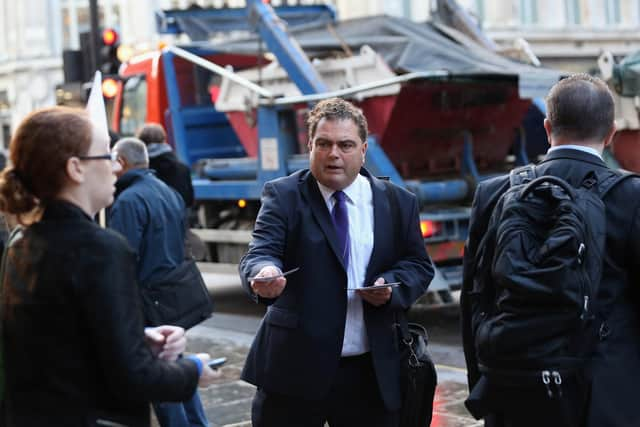Rail unions are warning there may be trouble heading down the tracks as bosses mull job losses
and live on Freeview channel 276
Members of the Rail, Maritime and Transport union handed out leaflets to commuters on Wednesday at major stations warning that despite the recent increase in fares, rail companies and the Government are intent on cutting thousands of frontline staff.
The union fears big job losses are imminent across the industry, warning there will be an impact on services and safety.
Advertisement
Hide AdAdvertisement
Hide AdAnd the The Transport Salaried Staffs Association said Network Rail was planning to cut more than 2,600 maintenance and works delivery jobs which it warned could have “devastating consequences” to the safe running of the industry.


RMT general secretary Mick Lynch said: “Despite rail fares going up again the Government and rail companies are planning to slash rail services and thousands of frontline jobs at stations, on trains and on safety-critical infrastructure.
“That means our railways will be less secure, less safe and less accessible, with more expensive rail fares. Passengers will literally be paying more for less.”
Manuel Cortes, TSSA general secretary, said: “What Network Rail is proposing is massive job cuts and massive changes to working practices.”
Advertisement
Hide AdAdvertisement
Hide AdA Rail Delivery Group spokesperson said: “The pandemic has been an unprecedented financial shock to the railway. The whole industry needs to respond to the challenges we face with the acceleration of changing travel patterns and more passengers migrating to digital technology.
“Train companies are working with unions on how to address those changes, while making sure the industry takes no more than its fair share from the taxpayer.”